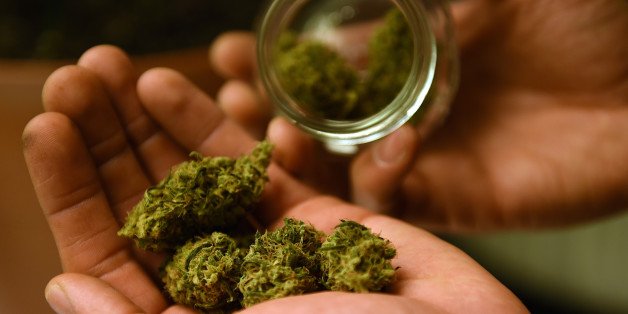A Comparative View of Uruguayan Drug Policy

Uruguay has been a pioneer in the area of drug policy starting in 2013 with the legalization of marijuana and the decriminalization of any other type of drug. Under Law 19.172, the Uruguayan legislature can regulate the produce, transportation, and marketing of marijuana. This allowed the government to invest in areas of drug education and prevention. Being a pioneer in civil liberties, Uruguay in the past has spearheaded policies that grant rights to its LGBT community, women's rights, and now drug reform, so it comes to no surprise that Uruguay is the first in taking this bold new approach to drug policy, fighting the producers instead of its consumers.
Known as the “Switzerland of Latin America”, Uruguay done not boast the high crime rate and gang violence that Central American countries have. Most gangs are small scale and engage only in theft and pickpocketing. However, this does not mean that hard drugs have not affected Uruguayans in the past decade. Starting in the 2000’s, many slums and low income areas in Uruguay have been exposed to drugs using chemicals that are banned from countries such as Venezuela and Colombia. To combat this, drug traffickers have invented new ways of bringing drugs into Uruguay without using these chemicals in a special drug called Pasta. This drug ran rampant around the cities of Uruguay in the early and late 2000’s, and put strain on the police force, which was already one on Latin America’s largest per capita. However, Uruguay comes from a culture that respects the judicial system, ranking one of the highest in judicial independence among Latin American countries. This gives Uruguay the perfect starting position to enact liberal laws that can be replicated in regional countries.
While not taking the approach that Colorado did in 2013, all citizens of Uruguay that wish to consume marijuana must register with government officials. After this process they can attain the product in 3 ways, pharmacies that will sell the drug at an attractive price, Cannabis club memberships comprised of under a hundred individuals that will grow the plant, or growing a maximum of 6 plants in your house. One of the most fearful elements of this was the database which all Uruguayans must be registered to if they wish to buy or consume the drug. To be on this database, Uruguayans must submit their fingerprints, then scanners at pharmacies will determine whether the consumer is legally able to purchase the drug. This raises the concern that this list might be used by a new reactionary government for malicious means, sometimes scaring Uruguayans from registering and still consume the drug illegally.
This is a drastic change in policy from the US’s “Colombia Plan”, which focuses on combating drugs using an iron fist technique. In Uruguay now we see many individuals growing marijuana in their own houses or joining cannabis clubs instead of buying it from drug dealers. Uruguay is an amazing example of how the question going into this century should not be “When do we legalize marijuana”, but instead “How would we legalize marijuana”. We can see through a comparison of Colorado and Uruguayan systems that it depends on the location, culture, and economic, and political problems must be addressed and acknowledged before attempting to legalize drugs.
Although legislature to pass and regulate marijuana has passed, there has been little work in actually implementing features that allow Uruguayans to purchase the product. The government is trying to micromanage every step of government sold marijuana leaving many uruguayans to grow in their own homes, or join cannabis clubs. Here we can see a different system than the decentralized state by state solution adopted in the US. While the focus of legalization in the US is profit driven, with entrepreneurs making money and paying taxes, this is opposite in Uruguay where profits are controlled and with severe limitations on marketing and branding. With the Uruguayan government responsible for the production of cannabis, and the paperwork required by pharmacies to sell this product, it has become a bureaucratic process that the government is showing little initiative to fix. Overall Uruguayans are shifting more towards growing inside their house and joining growing communities due to its fear that Uruguayan marijuana sold at pharmacies will be of lesser quality, and higher price than even the street value of the drug. This raises the question of whether it is really worth the government to sell marijuana if their product and price are inferior to the marijuana flowing in through Paraguay. Laura Blanco, president of Uruguay's Cannabis Studies Association and an influential voice in cannabis legalization said in 2015, "We strongly defend a collective system not motivated by profit. Basically, because we believe that this needed to be separated from the market,”. This reaffirms Uruguay's vision that it would be a mistake for cannabis to be treated as a consumer good, like how it has been implemented here in the US.
While legalization has saved many Uruguayans from harsh prison sentences, all drugs have been decriminalized in Uruguay since the 1970’s. Due to this there was not a widespread problem with incarceration and oppression before the law was passed. Number of arrests due to drug related crimes have actually soared almost two times in 2015, and marijuana continues to be the most seized drug entering Uruguay. In contrast though, other hard drug seizures such as cocaine, and heroin have dropped and are far below the amounts of marijuana apprehended.
Wow, a lot to digest (mean that in a very good way) and worth a second read... kudos!
Thanks!